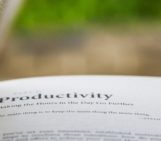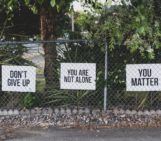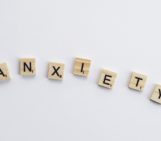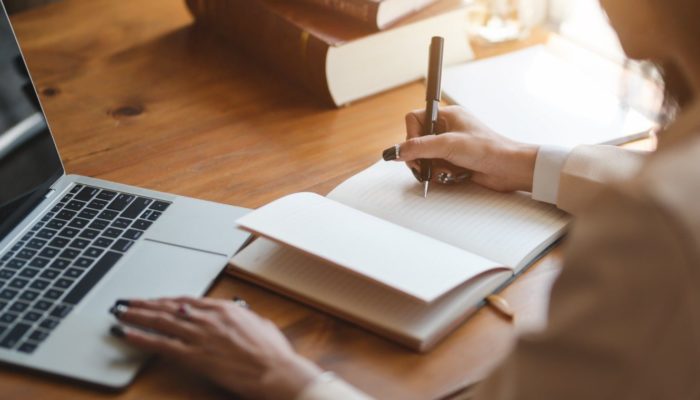
It has been many months since the first lockdown, in some countries about a year, in other countries perhaps eight months. A continuing learning curve, with many ups and downs. Now the end is slowly appearing on the horizon, with promises of vaccines, and several countries making definite plans on when and how to vaccinate. Still – it will take at least 6 months, quite possibly more, until it is over and we are back to “normal” – whatever this may be. It has been a long journey, and we are not there yet. And we recall how it was often said during lockdown #1: “thankfully, it is spring, and the weather is good. Imagine how this would’ve been in autumn/winter.” Unfortunately, here we are: a dreary November has just passed, and many are back inside, in varying degrees of confinement. How to hold on?
Check in with yourself, and be kind to yourself
We, the writers of this blog, notice that things seemed easier in the summer, once we got the hang of working from home. Now however, with winter setting in, and the realisation that this will not be over before Christmas, it is turning into a marathon. This is a good moment to remind yourself of the tactics that worked well for you in the beginning, and try to summon the courage to stick to these. This is why we kept roughly the same headers as in the first post, since they still apply. There are ups and downs, regardless of your living situation. Each situation comes with its own benefits and its own challenges. If you hit a low patch, do not be mad at yourself! Try to switch back to the support system which your experience taught you will work: walks, food, digital / socially distant meetings with friends or colleagues, kitty cuddles, a day of netflixing to recuperate: do something that restores your happiness. At times, finding happiness can be hard work; it might not be instantaneous. It might take days or weeks. You will have downs and ups and that is fine. We are running all a mental marathon in keeping the ups and downs in balance. These are still trying times, and self-care should be at the top of your priority list.
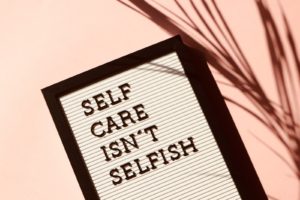
Photo by Madison Inouye from Pexels
Try to keep to a daily routine
Even though it is tempting to drop the daily routine as time progresses, try to stick to it. If you realize that it is becoming more difficult to stick to a routine, try to set up a support system with a friend or a colleague. Digitally check in with colleagues a few times per week – create a small network of mutual support. In our department, there are several digital coffee moments. Try to make use of these, and potentially revive them if they have gone dormant after a holiday break. It is easy to slide into your own small bubble of the world, especially as time progresses, and communication by email becomes the norm. Email is impersonal, and often a source for miscommunications. Try to find a medium that recreates as much as possible the random meetings where you talk about nothing in particular. This is better than nothing to reconnect. And remember: also small tasks are valuable! Getting dressed, doing the dishes, making a healthy meal: still all bonus points! You did great!
Avoid a digital bombardment
With all the digital apps it is too easy to have constant notifications popping up on phone and computer. When you have a task that requires focus, switch off all other apps: switch off Whatsapp, Facebook, Outlook, Teams, Slack, etc., and focus only on the task at hand. Humans are incapable of multi-tasking: multi-tasking equals switching focus back and forth between jobs constantly. So called “deep work” can be much more satisfying, and crucial to writing reports, papers or grants. The same goes for following a digital meeting or lecture: switch off other pop-ups on your screen to ensure distraction-free focus. Create time and space for focusing on 1 task at the time – even if this means saying no to another job.
A special shout-out here to what we mentioned in our previous post on Covid: avoid doom scrolling! It is so easy to scroll through Twitter or Reddit, follow your governments corona dashboard and constantly be on alert for news on how the virus unfolds. It is particularly enticing to whip oneself into a deep dark fury at the injustice and incompetence of some of the governments and peoples of the world. In these times especially, for those readers who are British or live in the UK, it is temping to doom scroll about Brexit. No matter if you are fixating on the covid-rules for Christmas or Brexit: try to restrain yourself, from experience we can assure you: spending hours reading online will only make you feel worse. What will be, will be.This too, like other things, shall pass, and there is now also light on the horizon.
As John Lennon already said: “Everything will be okay in the end. If it’s not okay, it’s not the end.”
Get creative with holiday activities
Even if you are allowed to go outside, and if the gyms or museums or zoos are open, it may still be difficult to convince ourselves to actually go. It is cold, numbers are up, you just don’t want to. Moreover, many family or friend gatherings are restricted. Try to find digital alternatives, or perhaps you pre-quarantine before meeting with a vulnerable friend. Try to be active for at least half an hour a day, it will help your mood and ability to concentrate. Try and force yourself to do it! Either wander around the house, try some of the plethora of homemade workout routines that are now online, or try an app that makes you “battle” your friends in counted steps or moved minutes. And if you want to go out, and it is cold and foggy: the Norwegians say there is no such thing as bad weather, only bad clothing! So walk like a Norwegian, wrapped up in your winter clothes, and reward yourself with a nice hot chocolate afterwards!

Photo by Edward Eyer from Pexels
You are not alone
This year has been incredibly tough for everyone. It has been hard to adapt. The motivation for writing this blogpost lies in that we, as writers, needed the reminder ourselves to care for ourselves. To share our personal stories: Anne lives alone, and she misses high quality and high quantity human contact, since conversations with others are often the spark for creativity. Hannah loves to wander around Lisbon and read in cafes, however this year didn’t allow for that. She feels lucky though, because she lives with her partner in Lisbon so hasn’t had to cope with isolation. Hannah fully acknowledges that without her partner, this year would have certainly been an even harder challenge.
No matter where you are and who you are with, managing your mental health is a continuous challenge, especially in these days when certain hobbies are not really an option. Humans are social creatures and the lack of social contact has been hard on all of us. It has emphasized how important mental health is, of ourselves and the people around us. We are stressed, our loved ones are stressed, our colleagues are stressed and our bosses are stressed. Moreover, as academics, we are often expats, and we have international friend circles. Many of us were looking forward to Christmas even more than usual this year. It would be a time to be social and have a moment not dominated by worrying about the pandemic. However, it is by now clear this is not going to be easy. In most cases, traveling requires quarantines and/or vaccinations, and the worry for what you might catch on the way. As a consequence, some of us are returning home for Christmas, and some have taken the decision to stay put. Neither option is carefree, however, we strongly encourage you to take time off.

Photo by Vlada Karpovich from Pexels.
Make the most of your Christmas break
For those that are returning to your loved ones this year: be safe, and appreciate the time you have with them. Family comes in all forms and that love is incredibly precious and revitalising. Hopefully the countdown until you can spend time with those dearest to you keeps you going, and the time spent together helps your recharge for the rest of winter.
For those of us who will not see their loved ones this year: do not fret, this is but one year. Try to continue any Christmas traditions you have, and try to stay in touch with your loved ones via online methods. Maybe you can try something new: perhaps some of your other expat friends are in the same position, and you can have a unexpected international Christmas dinner. Try to be there for each other, if you can. However, if it is most soothing to you to curl up into a ball and ignore the world, and binge-watch movies while eating unlimited chocolate, then go for it. Try to make the most of it, caring for yourself and for those around you.
Take a break and switch off
Christmas time or midwinter is historically the time to get together to ward off the cold and dark. It is a celebration that the winter is almost over and spring is just around the corner, to celebrate that we survived another winter. With spring and vaccinations in sight, there is a palpable end to this pandemic. Take your Christmas break, relax, be as social as you can and need to be, and above all, be safe. Ward off the cold and dark outside and inside as best as you can, focus on yourself and remember: the winter will be over soon.
Written by Anne Pluymakers & Hannah Davies

